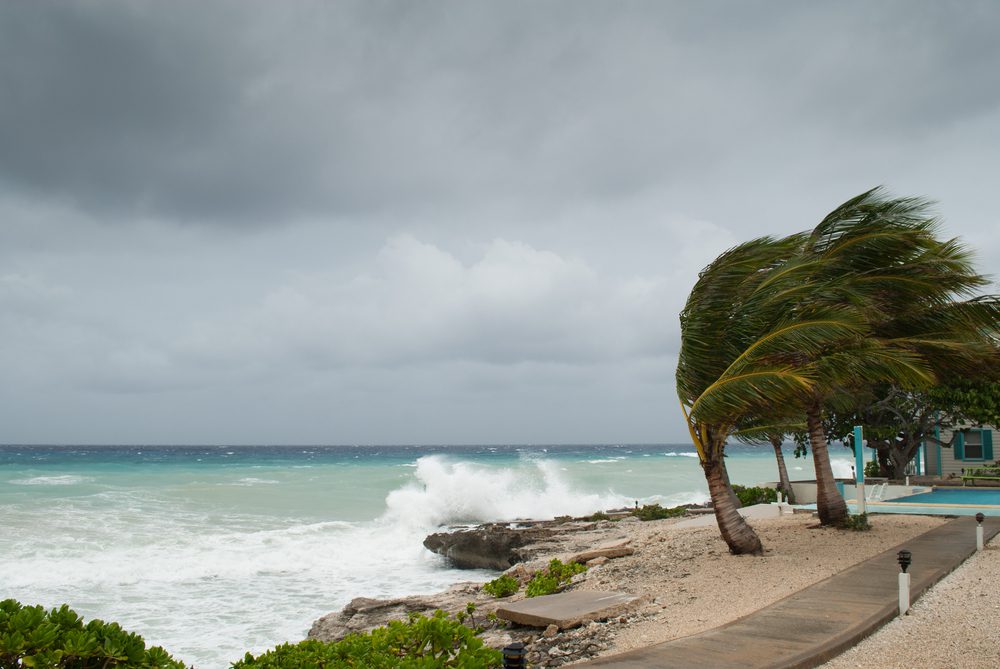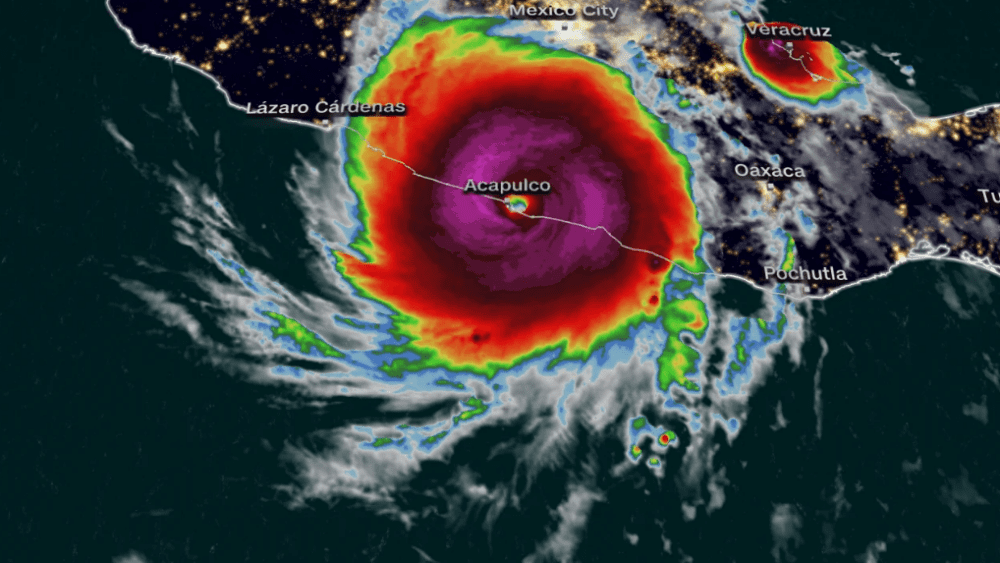Hurricane Otis Hits Mexico
Hurricane Otis made landfall near Acapulco, Mexico, early Wednesday as a Category 5 storm, delivering what forecasters warned could be a “nightmare scenario” for Mexico’s southern coast as it threatens to cause catastrophic damage with destructive winds, heavy rainfall, and storm surge.
Otis’ center slammed into Mexico’s coast around 12:25 a.m. local time with sustained winds of 165 mph, the National Hurricane Center said.
The storm is expected to rapidly weaken as it presses inland and over southern Mexico’s higher terrain, where it will likely dissipate Wednesday night, the hurricane center said. This article explores the potential effects of Hurricane Otis on Americans’ mental health, shedding light on a crucial issue often overshadowed by the immediate impact of such disasters.

How Does Hurricane Otis Affect Americans?
Americans have a long history of dealing with hurricanes that has left a profound mark on their collective psyche. From the devastation caused by Hurricane Katrina in 2005 to the more recent impacts of Hurricane Ida, the U.S. has grappled with the trauma and anxiety that such natural disasters bring. It lives on in Americans’ minds. As Hurricane Otis enters the news cycle, it’s vital to recognize the potential anxiety it can trigger in those who have experienced past hurricanes.
Referencing recent studies, including those co-authored by NCEI’s James Kossin, we can understand that strong storms like Hurricane Otis can lead to mental disorders among those directly or indirectly affected. This highlights the growing mental health consequences of increasingly powerful climate-driven storms. Climate change has amplified the intensity of hurricanes, exacerbating their destructive potential and the psychological toll they exact.

What Are the Signs of Hurricane Anxiety?
To spot the symptoms of anxiety early amid hurricane news, it’s essential to understand the common signs:
- Persistent Worry: People may constantly worry about the hurricane’s progress and potential impact.
- Sleep Disturbances: Anxiety can lead to difficulty falling asleep or staying asleep, resulting in fatigue.
- Physical Symptoms: Anxiety may manifest in physical symptoms like headaches, muscle tension, and stomach issues.
- Increased Irritability: People may become easily irritated or agitated, even in situations unrelated to the hurricane.
- Difficulty Concentrating: Hurricane-related anxiety can make it challenging to focus on daily tasks.
Recognizing these signs is the first step in addressing hurricane anxiety and seeking support.
Best Sources of Information on Hurricane Otis
For the most accurate and up-to-date information on Hurricane Otis, consider the following sources:
- U.S. Embassy & Consulates in Mexico
- NOAA (National Oceanic and Atmospheric Administration) National Hurricane Center and Central Pacific Hurricane Center – Visit the Department of State’s Hurricanes, Typhoons, and Cyclones page for more information.
These sources provide official, reliable information that can help you stay informed and make well-informed decisions during the hurricane’s progression.









